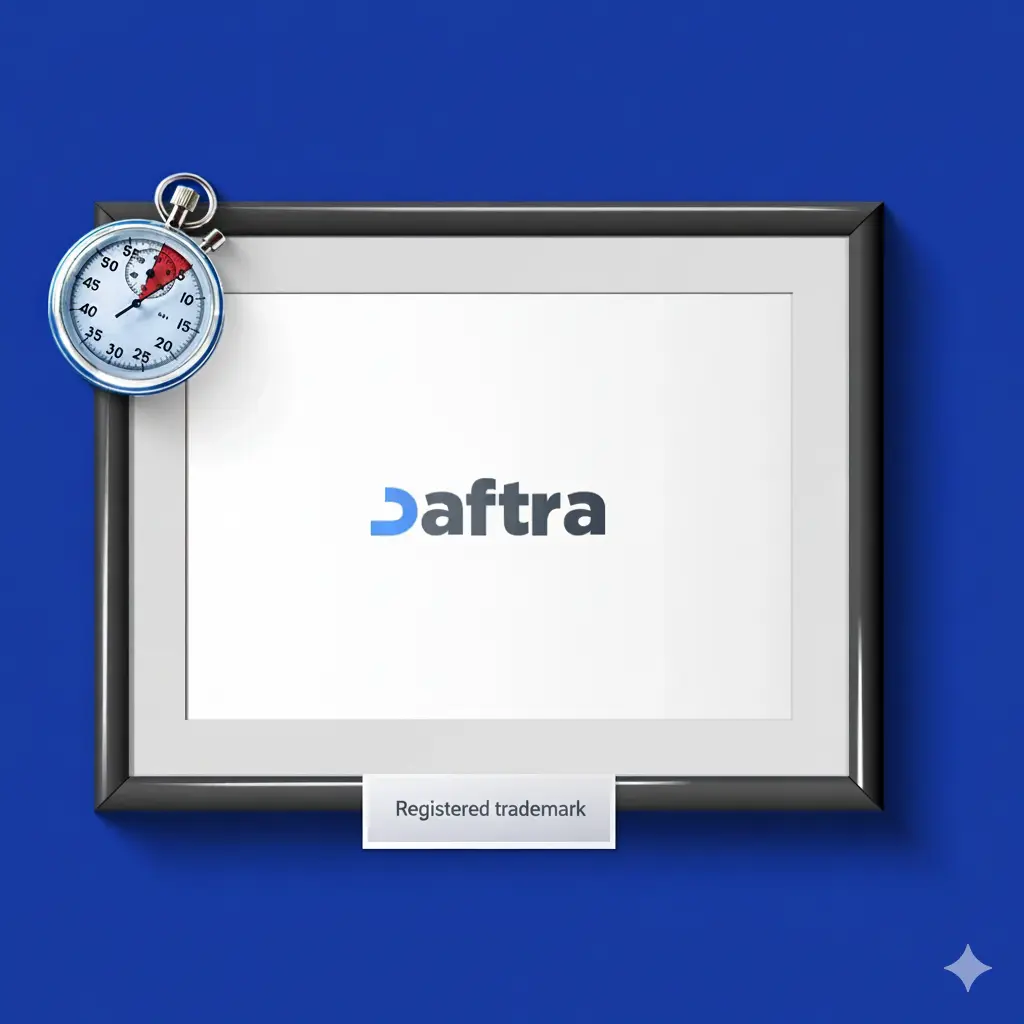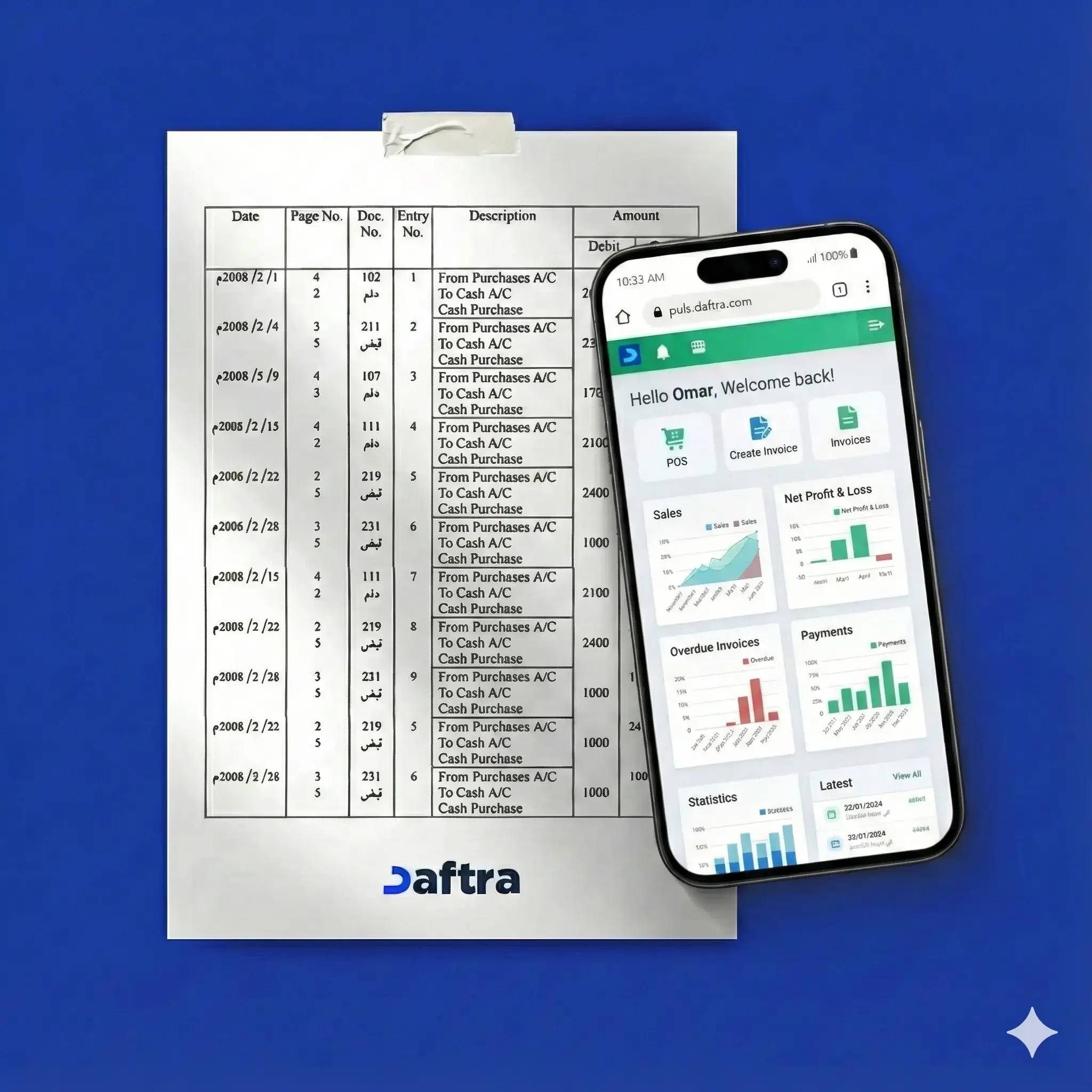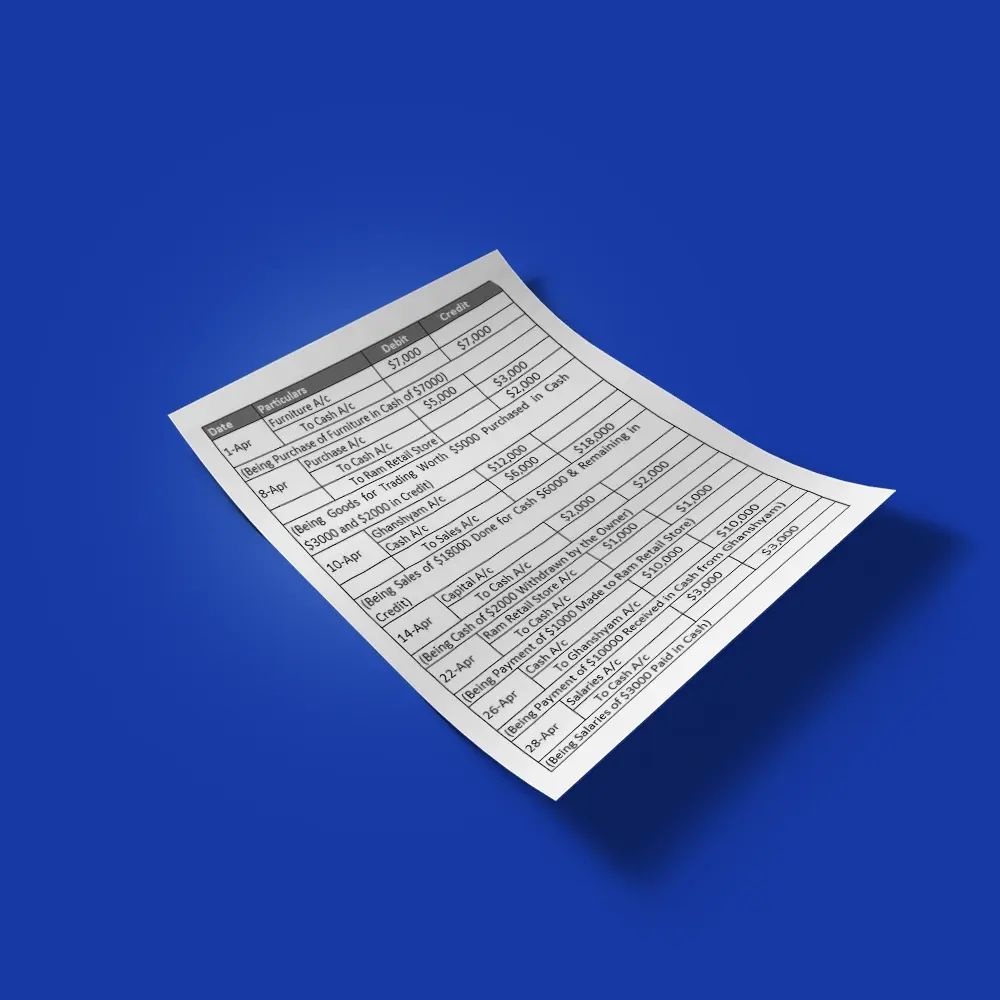Sustainable Accounting and Its Relationship to Environmental and Social Impact

Table of contents:
- Summary of Key Points
- What is Sustainable Accounting?
- What are the Objectives of Sustainable Accounting?
- What are the Elements of Sustainable Accounting?
- What are the Benefits of Sustainable Accounting?
- What is an ESG Report?
- What are the Challenges Facing Sustainable Accounting?
- What is Sustainable Accounting Disclosure?
- Are there alternative solutions for sustainable accounting?
- How does the Daftra software help you implement sustainable accounting?
- Frequently Asked Questions
Profits are not always the primary or final goal of business activities. In this regard, sustainable accounting provides companies with an opportunity to achieve a balance between profitability and maintaining social and environmental responsibility, which is fundamentally considered an integral part of corporate strategy.
Therefore, we present to you in this article a comprehensive guide on sustainable accounting and its objectives, elements, the most prominent challenges facing sustainable accounting, and details related to how to implement sustainable accounting disclosure standards issued by the International Federation of Accountants and International Financial Reporting Standards for preparing financial reports.
Summary of Key Points
- Sustainable accounting refers to the standards applied to study the environmental and social impact resulting from the commercial financial performance of various institutions.
- The objectives of sustainable accounting include protecting the environment from harmful operational and production processes, increasing awareness of climate change and its effects, protecting community interests, and preserving human resource rights.
- Sustainable accounting consists of a set of elements represented by environmental elements, social elements, and governance.
- The benefits of sustainable accounting emerge through risk management, improving institutional reputation, increasing the efficiency and effectiveness of operational and administrative processes, and obtaining sustainability certifications.
- Sustainable accounting faces a set of challenges, including high costs associated with sustainability reports, difficulty in standardizing sustainability standards, and regulatory pressures to adopt sustainable accounting practices in a traditional manner.
- Disclosure of sustainable accounting reports is part of compliance with international accounting standards that require disclosure of financial information related to sustainability.
- This is a comprehensive summary that covers the fundamental aspects of sustainable accounting, from its definition and objectives to the challenges it faces and disclosure requirements.
What is Sustainable Accounting?
The definition of sustainable accounting is a non-financial, organized framework for the tasks and objectives of the financial and accounting structure. It refers to the approach specialized in studying the social and environmental impact of commercial and economic entities. Sustainable accounting includes studying and analyzing corporate governance through company policies to achieve its objectives. The role of sustainable accounting extends to measuring employee satisfaction with the wages they receive and the extent of commitment to fair distribution of salaries and bonuses. Additionally, sustainable accounting evaluates the extent of a company's support for civil society institutions and non-profit voluntary organizations.
What are the Objectives of Sustainable Accounting?
The objectives of sustainable accounting are centered on achieving a balance between environmental, economic, and social dimensions. Below, we answer the question about what sustainable accounting aims to achieve:
1- Protecting the Environment from Harmful Operational and Production Processes
Reducing the harmful environmental effects of operational and production processes, as well as minimizing emissions from them, such as carbon emissions, is one of the most important objectives of sustainable accounting.
This is achieved by encouraging the effective use of renewable and non-renewable resources and energy sources in a manner that does not harm society, either directly or indirectly, and allows for the sustainable use of these resources for long-term use by future generations. It also involves positive waste management using environmentally friendly technologies, such as green technology that helps protect the environment, and remanaging supply chains to achieve environmental sustainability goals.
2- Increasing Awareness of Climate Change and Its Impacts
One of the objectives of sustainable accounting is to increase awareness of climate change and its impact on business, which helps companies mitigate the effects of climate change. This is achieved through tracking and reporting greenhouse gas emissions and taking the necessary actions and measures to prevent climate change risks.
3- Protecting Community Interests
The objectives of sustainable accounting include achieving a balance between the company's needs to generate profit and the needs of the surrounding community, through preserving community interests and promoting principles of accountability and transparency in the company's dealings with the public, customers, and other external parties, as well as focusing on participation in social initiatives in cooperation with civil society institutions.
4- Preserving Human Resource Rights
Providing a healthy, positive, and safe work environment is one of the most important objectives of sustainable accounting. This is achieved through effective human resource planning, respecting employee rights, supporting and developing them, providing opportunities for learning and training, motivating the work team, and fostering a positive institutional culture that values diversity among team members and involves them in important decisions. It also includes distributing wages and salaries among employees fairly and transparently, as well as providing additional benefits such as leave, bonuses, and recreational software for employees.
| Through the Daftra software, you can accurately manage your employees, handle salaries, bonuses, leaves, attendance, and all other details that facilitate implementing sustainable accounting and preserving human resource rights through the employee management software. |
By understanding these objectives, we have learned about the role of sustainable accounting in maintaining a balance between the environmental, social, and practical aspects.
What are the Elements of Sustainable Accounting?
Sustainable accounting is based on several elements according to comprehensive ESG sustainability standards. In the following points, we mention what the components of sustainable accounting are:
1- Environmental Elements
This aspect focuses on clarifying the environmental impact of practicing economic and commercial activities. This element is used in sustainable accounting to assess the extent of efforts that institutions make to avoid operational and production practices that are harmful to the climate and environment.
2- Social Elements
Evaluating the impact of business practices of entities on the social dimension in terms of helping communities and non-profit institutions.
3- Governance
This element refers to how business practices align with ethical obligations and principles through human resource management policy and the regulatory frameworks followed.
What are the Benefits of Sustainable Accounting?
Many people may not know the importance of sustainable accounting and how it affects the work of various companies. Here are the most prominent benefits of sustainable accounting:
1- Risk Management
Sustainable accounting reports help provide a comprehensive and clear vision of the impacts of business operations. Through these reports, it is possible to identify financial risks associated with the negative impacts of business activity on the environment, society, or individuals.
The role of sustainable accounting in risk management goes through some steps, which are:
- The impacts include environmental pollution resulting from the discharge of chemicals and industrial waste, unsustainable depletion of natural resources, and effects on community residents' health due to practicing some operational activities that lead to air, water, and soil pollution, poor human resource management, and other harmful impacts.
- Here comes the role of sustainable accounting reports in identifying potential risks and determining weaknesses, and necessary improvement opportunities.
- Making necessary decisions through which the company's plans can be aligned with sustainability goals in supporting community interests and preserving its natural and environmental wealth.
2- Improving Institutional Reputation
The company's implementation of sustainable accounting requirements and its objectives in preserving the environment, society, and protecting human resources help the institution support and enhance its brand, maintain its competitive position and market share, and also help it attract the best talents and competencies from job candidates.
This role contributes to attracting investor interest in financing such integrated companies, and also maintains the consumer base and helps attract new customers.
3- Increasing Efficiency and Effectiveness of Operational and Administrative Processes
Sustainable accounting reports help reconsider unnecessary resources and costs, and identify repetitions and unbalanced operational processes, thus rationalizing resource use and restructuring production processes to achieve their required efficiency and effectiveness.
4- Obtaining Sustainability Certifications
Sustainable accounting reports help in obtaining various sustainability certifications that reflect the company's commitment to certain industrial and production standards, such as the Global Recycling Standard (GRS) certification, FSC certification, GOTS certification for the textile industry, and Certified B Corporation certification.
5- Increasing Transparency
Sustainable accounting works on monitoring and following up on company performance, which enhances transparency and makes companies more self-monitoring. This consequently leads to growth in their performance and makes it more professional.
6- Improving Decision-Making
Sustainable accounting helps provide more accurate information and data, which assists companies in making decisions more easily and correctly.
7- Improving Company Relations
Through sustainable accounting, company information becomes more accurate, which enables them to build better relationships with stakeholders, leading to increased development and growth.
In these simple points, we have clearly summarized the advantages of sustainable accounting in terms of the importance and impact they represent.
What is an ESG Report?
The acronym ESG refers to Environmental, Social, and Governance Standards, which is a comprehensive sustainability report of environmental, social, and governance information about a company's performance and impact. Investors and financiers use this report to make investment decisions in a particular entity or to compare diverse investment destinations. They believe that companies that meet ESG standards in terms of environmental and social responsibility are more deserving and prioritized for aligning their investment portfolios with them, compared to other companies that some investors believe are unethical and unworthy of investment trust.
Thus, we have clearly explained what ESG means in a detailed and simple manner at the same time.
What are the Challenges Facing Sustainable Accounting?
Sustainable accounting faces a set of challenges that make its implementation not an easy matter. Here are the most important of these obstacles:
- Difficulty in standardizing ESG measures (sustainability standards) that will be applied due to the complexity of some data and indicators specific to these standards, as well as the difficulty of accurately determining the environmental impacts and social dimensions of business activities and their operations, due to the difficulty of developing effective tools to measure and evaluate environmental and social impact.
- Cost challenges associated with collecting reliable and guaranteed information necessary for sustainability reports and reporting them. Small and medium enterprises face cost challenges in particular.
- Increasing regulatory pressures to adopt sustainable standards and practices in a strict and traditional manner.
- Difficulty in balancing profit achievement and commitment to social and environmental responsibility is one of the biggest problems facing sustainable accounting.
- Lack of technologies and awareness of them is one of the biggest challenges facing sustainable accounting.
- Sustainable accounting may face difficulty in implementation due to the absence of data in one place and the existence of many software systems.
- Continuous changes in financial regulations cause difficulty in implementing sustainable accounting correctly.
- Data and information protection is one of the biggest challenges facing sustainable accounting due to numerous cyber attacks.
- There is a lack of complete awareness of this type of accounting among accountants.
What is Sustainable Accounting Disclosure?
The term sustainable accounting disclosure means compliance with international accounting standards IFRS for creating financial reports, which require disclosure of financial information related to sustainability according to International Financial Reporting Standard S1, and climate-related disclosures according to International Financial Reporting Standard S2, and standards IFRS 1 and IFRS 2, which are specialized in revealing companies that follow comprehensive sustainability information to investors. The application of these standards is regulated by both the International Sustainability Standards Board (ISSB) and the Sustainability Accounting Standards Board (SASB), which clarify sustainability issues that have a tangible impact on financial performance.
Are there alternative solutions for sustainable accounting?
Yes, the challenges of sustainable accounting can be overcome through alternative and innovative solutions by using cloud-based accounting software to automatically collect and analyze data, reviewing and confirming sustainability reports by a neutral third party, and providing those responsible for preparing these reports with the necessary skills to address the challenges they may face during the creation of these reports.
| Daftra software helps you through an integrated accounting software to obtain detailed reports with all accounts and accurate figures, in addition to complete management of these accounts and your finances with ease, with a smooth and simple user interface to perform all operations easily. |
How does the Daftra software help you implement sustainable accounting?
The Daftra software provides you with many privileges and tools that help you manage your accounts easily and more software automatically, in addition to accurate analytics and reports.
The Daftra software helps in:
- Recording entries and invoices automatically on a daily basis.
- Complete management of assets and various accounts, which provides accuracy and significantly reduces errors.
- Providing complete security for information and data, and maintaining complete confidentiality of all details related to operations.
- Comprehensive human resources management, which supports complete governance, represents a strong part in sustainable accounting and its implementation.
- Providing reports continuously with all information and variables that occur in business activity.
All these services work completely to achieve sustainable accounting more easily and quickly without the need to exert much effort.
Frequently Asked Questions
What is the role of accountants in sustainability?
Accountants do many things to implement sustainable accounting, such as:
- Continuously measuring performance.
- Preparing reports and ensuring their accuracy.
- Monitoring changes.
- Continuously reviewing to avoid any problems or errors.
- Working to achieve the goal of sustainable accounting.
- Using professional software and technologies such as Daftra software to achieve sustainability easily and automatically.
The difference between sustainable accounting and green accounting
Sustainable accounting is a broader concept than green accounting as it includes environmental, social, and governance aspects, while green accounting focuses only on the environmental aspect.
What is the concept of sustainability?
The concept of sustainability is preserving resources of all types socially and environmentally without affecting future generations, and sustainability helps maintain balance between the different needs of individuals and society.
In conclusion, it can be said that sustainable accounting is a mirror that reflects the hidden story of the relationship between accounting figures, financial data, and profitability on one hand, and the protection of the environment, society, and human resources on the other.
Care must be taken to achieve the goals of sustainable accounting and apply the standards associated with it within the financial framework to achieve the required balance between economic and investment success, while maintaining social care and environmental protection at the same time.
















